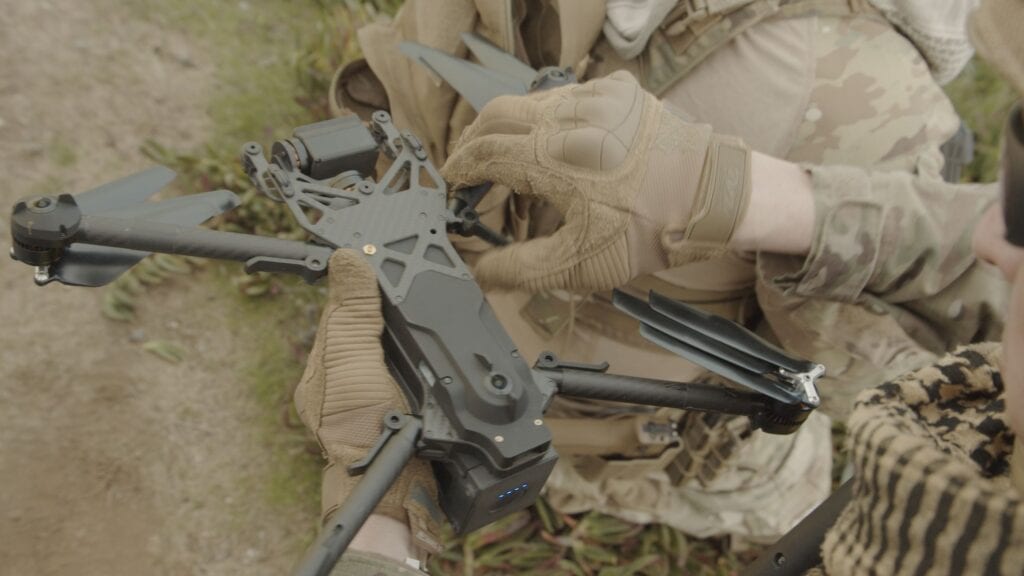
A version of Skydio’s X2, pictured, and four other U.S.-made drones were approved by the Defense Innovation Unit as trusted purchases for government customers. (Skydio)
With Congress poised to ban all U.S. government purchasing of Chinese drones and components, the Department of Defense is leveraging its small UAS prototyping efforts with industry to offer domestically manufactured options to military and federal customers.
The new effort by the Defense Innovation Unit (DIU), called Blue sUAS, builds on the Army’s ongoing Short-Range Reconnaissance (SRR) development program, which selected six U.S. and allied companies to develop an inexpensive VTOL drone weighing less than 5 pounds that can be used for situational awareness.
Five of those companies — Altavian, Parrot, Teal Drones, Skydio, and Vantage Robotics — have now been selected by Blue sUAS as trusted options to be available for purchase on the GSA schedule by September.
“Recognizing the demand signal across the federal government for trusted and secure sUAS, DIU took the lead in developing systems that are broadly applicable to an array of users and mission sets,” DIU said in a press release. “Coined Blue sUAS, this spinoff effort builds upon the Army’s initial success and offers sUAS that mirror the air vehicle and software architecture of SRR, but provides alternative ground controller and radio configurations to accommodate a variety of users across the federal government.”
For over a decade, U.S. industry has struggled to find success in the small UAS industry, where Chinese DJI controls between 70 to 80 percent of the market. Amid data security concerns and broader decoupling actions between the two nations, both the House and Senate versions of this year’s National Defense Authorization Act include an amendment to ban the use of federal funds to purchase DJI and other drones with Chinese systems or components.
The billion-dollar opportunity created by that legislation, coupled with Blue sUAS, may be the drone industry’s best shot at gaining a market foothold — and the Pentagon’s best shot at securing a trusted supplier ecosystem.
“Blue sUAS represents a tremendous first step toward building a robust and trusted UAS domestic industrial base that ensures sustained delivery of highly-capable, secure UAS to the warfighters that depend on it,” said Michael Kratsios, acting under secretary of defense for research and engineering.
One key player not listed on the release is Auterion, a Switzerland and California-based software company developing and maintaining open-source software tools for drones, including the widely-used PX4 autopilot. From the start of the SRR solicitation, Auterion was contracted by DIUx to build software for all participants’ ground control architecture, ensure interoperability, and integrate capabilities such as the U.S. Air Force’s Android Team Awareness Kit (ATAK).
Dave Sharpin, CEO of Auterion Government Solutions, explained that taking the burden of software development off of each drone company improves commonality for DoD and lowers overall development prices for companies like those participating in Blue sUAS — helping smaller startups compete with the likes of DJI, which has thousands of software engineers at its disposal.
“We need an alternative to Chinese-made small drones and Blue sUAS is a first step in achieving that objective.” said Mike Brown, director of DIU. “Working across DOD and the U.S. government aggregates the business opportunity for these five vendors and enhances the long-term viability of this capability for the U.S. and our allies.”